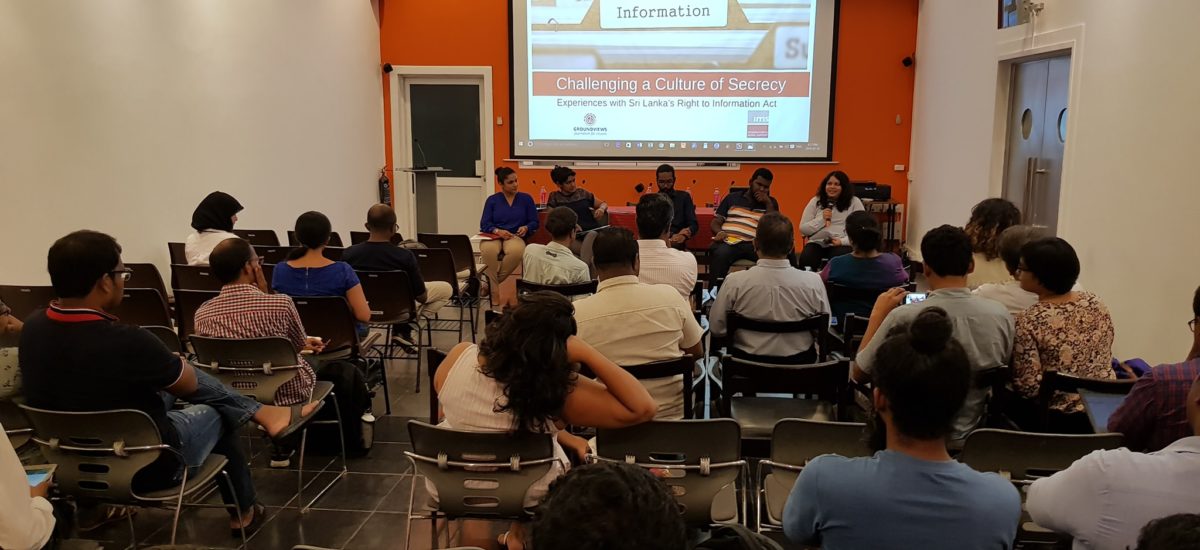While the Sri Lankan State maintains a culture of secrecy cemented through legislation like the Official Secrets Act, the Right to Information Act, operationalised in early 2017, is now used by citizens, journalists and civil society to raise vital questions around transparency, accountability and due process.
But two years since its operationalisation, has RTI legislation succeeded in combating and contesting the culture of secrecy that prevails?
Groundviews hosted a discussion to unpack the experiences of the Act in these two years, and what more can be done in the future to support citizens filing for information, and to support public authorities to respond in a more streamlined manner.
Sankhitha Gunaratne is the Program Manager for RTI at Transparency Sri Lanka. Tharindu Jayawardhana is a journalist at the Lankadeepa – ලංකාදීප newspaper, Malsirini De Silva works on RTI-related reseach at Verité Research where she is the Deputy Head of the Legal Team, and Pasan Jayasinghe works on awareness and public interest RTI requests at the Centre for Policy Alternatives. Their perspectives include insights from awareness raising among citizens, understanding of public authorities gleaned from filing of public interest information requests, monitoring the government’s openness to these requests and how the media can use RTI to enhance their reporting.
Watch the three segments of the event on video, embedded below.

